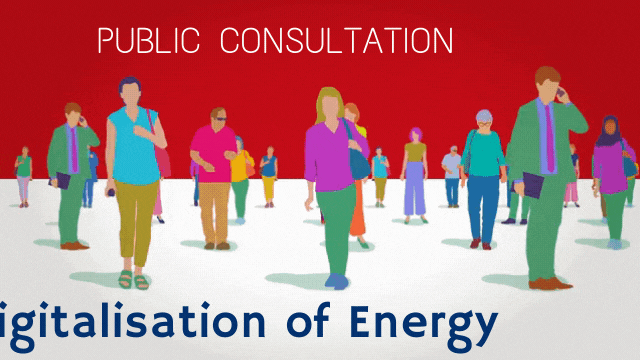Digitalisation in Energy sector
Digitalization in the energy sector makes energy systems more connected, intelligent, efficient, reliable and sustainable in the coming decades.
Consequently, information and communication technologies (ICT), modern sensors, big data and artificial intelligence and the Internet of Things (IoT) are some of the technologies that can innovate the way we use the energy and help find solutions for the decarbonisation of our energy systems.
Digitization has an impact along the entire energy value chain, from generation to transportation, distribution, supply and consumption.
It can also help complement the growing share of renewable energy by providing flexible power systems that provide energy storage and demand-side solutions, even for sectors that are difficult to decarbonise.
A systems-wide approach is needed so that energy digitization can help deliver the EU's ambitious political priorities, including the European Green Deal, and make the EU fit for the digital age, through synergies between tools in both of them. the political areas.
Digitization and extensive use of data also comes with a number of challenges and requires maintaining high standards of privacy, security, security and ethics, particularly for cybersecurity issues. Ensuring that the ICT sector is efficient and renewable energy based is also very important for this fast growing sector.
Furthermore, the development of digital solutions requires future-proof infrastructure with common standards, gigabit networks and secure clouds of current and future generations.
The 2022 EU action plan
The European Commission is currently preparing a Digitalisation of Energy action plan.
The action plan, planned for publication in June 2022, will be one of the key initiatives to accelerate the implementation of digital technologies in the energy system, as highlighted in the EU energy system integration strategy. It aims to accentuate what can be done in terms of legislative and non-legislative activities to address these challenges, and in particular whether these are better addressed at EU level, left at national level, or even local jurisdiction.
Take part to the Public Consultation
As preparation for this action plan, the Commission is looking for input and thoughts from wider society. That is why all these issues are undergoing a public consultation, available in all official EU languages and open for input until 24 January 2022. The feedback will help shaping the different actions and intended sustainability transformations:
European Commission Public Consultation (04 October 2021 - 24 January 2022)


